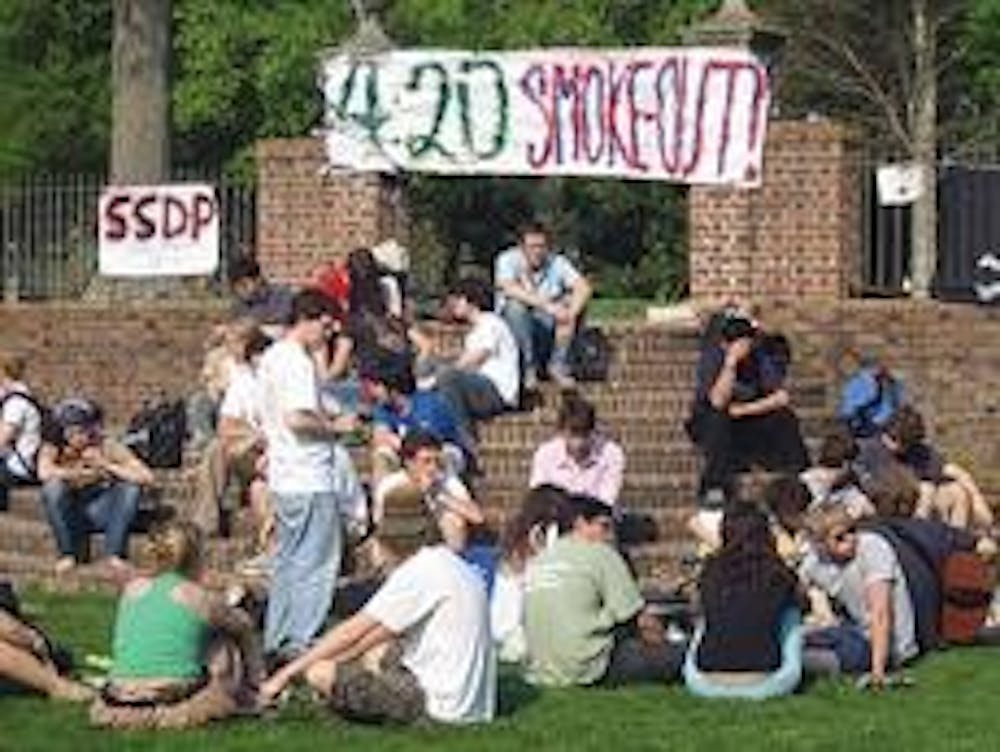Many AU grads go on to shake up policy and politics in the nation's capital, but School of Public Affairs alumnus Kris Krane has enjoyed more success than most in a lesser-known political arena: fighting the War on Drugs.
Krane, a political science major and member of the Class of 2000, was recently named executive director of Students for Sensible Drug Policy, or SSDP, a non-profit organization headquartered in D.C. that is "committed to providing education on harms caused by the War on Drugs, working to involve youth in the political process, and promoting an open, honest, and rational discussion of alternative solutions to our nation's drug problems," according to its Web site, www.ssdp.org.
"We'd like to see policies that negatively impact young people to be changed or repealed," Krane says. "Treating drugs is a public health issue, not a criminal issue."
Congress recently overturned the Drug Provision of the Higher Education Act, which denied federal financial aid to all students who received a drug conviction prior to receiving funding. SSDP's lobbying efforts played a key role in the reversal.
As a student at AU, Krane became involved with the once-thriving campus SSDP chapter, which no longer exists. Krane was named executive director of the organization in January 2006 and now manages its office in Dupont Circle.
SSDP uses grassroots campaigns aimed at changing currently established drug policies in the U.S., which Krane describes as "punitive."
The organization calls itself the "DARE Generation," a reference to the national Drug Abuse Resistance Education, or DARE, program administered by law enforcement officials in U.S. elementary schools. Krane says that many students' experiences in DARE led them to involvement in SSDP.
"We're the first generation that's gone through the DARE Program," Krane says.
Krane says the DARE program uses scare tactics to tell students drugs and people who use them are bad, actually creating a negative effect when students later realize that drugs are not as dangerous as they were previously told.
"Having been lied to and realizing you've been lied to is a major motivation [to use drugs]," Krane says of the DARE Program.
There are two ways SSDP has been trying to push for more progressive drug policies, according to Krane. The first is on the federal level, where SSPD lobbied for changes in the Drug Provision of the Higher Education Act. The provision stated that anyone who was ever convicted of drug use was not eligible for higher education funding, and if convicted while receiving funding under this act, funding was automatically taken away. Krane said over 200,000 students were denied aid under this law.
Recently, SSDP helped to lobby Congress to scale back the Drug Provision so it only applied to students caught using drugs while receiving aid, not those who used drugs before they received funding.
"It's the first victory as far as reforming a drug law in Congress for over a decade," Krane says.
According to Krane, SSDP is also currently bringing a lawsuit to federal court that challenges the constitutionality of the Drug Provision of the Higher Education Act.
One of the most recent ways SSDP has tried to focus on changing drug policies is through their Campus Change Campaign, a program that supports the creation of SSPD chapters on college campuses that pressure the administrations to change their policies on drugs.
"The focus on campus is fairly recent," Krane said. However, he said it will eventually "become the focus of the organization."
Krane said there are numerous collegiate chapters across the nation, many of which have already found great success in changing their colleges' drug laws. Florida State University and the University of Maryland chapters "passed initiatives on campus calling for the administrations to change marijuana policies," he said.
The initiatives passed encourage the universities to treat marijuana violations the same way they would alcohol penalties, Krane stated, saying it was unfair that marijuana penalties brought along criminal charges while alcohol use received only community service.
"We're not saying students shouldn't be punished at all," Krane said. "We're just saying students shouldn't be treated disproportionately with the so-called crime they committed."
Krane said that overall the organization has been successful.
"We're changing policies at campus, local and federal levels," Krane said. "I'd say for a drug policy organization, we're hugely successful"





